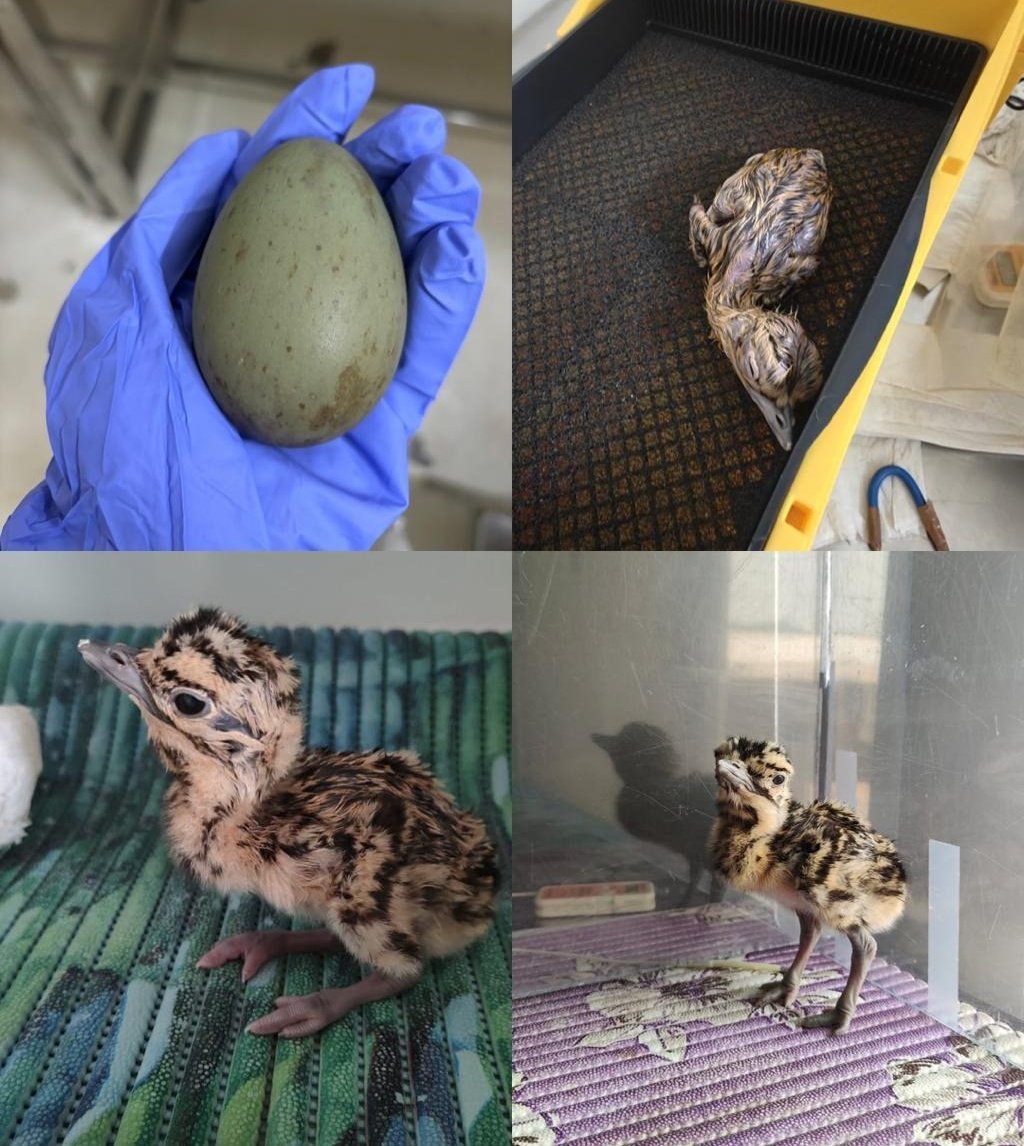Jaisalmer: In what could be called a critical event in the efforts to prevent the extinction of the Great Indian Bustard, an endangered species, a chick has been born through artificial insemination in Jaisalmer district, Rajasthan. Researchers at the National Conservation Breeding Centre in Jaisalmer successfully hatched this Great Indian Bustard chick. The process involved obtaining sperm from a 3-year-old male bustard named Sudha and inseminating a female named Toni. The chick successfully hatched after Toni laid an egg on September 24.
The Great Indian Bustard is a critically endangered species, with only around 150 remaining. Of these, 90% are found in Rajasthan, while the rest are in Gujarat, Karnataka, Maharashtra, and Andhra Pradesh. In 2018, the Wildlife Institute of India, along with the Government of India, the Government of Rajasthan, and the Forest Department, established the Great Indian Bustard Artificial Breeding Center in Jaisalmer as part of the Bustard Recovery Program, aimed at increasing the bustard population.
Reacting to the birth of this chick, Rajasthan Chief Minister Bhajan Lal Sharma took to X and said, “Happy and proud news! A historic achievement has been made in Jaisalmer, Rajasthan. Significant success has been achieved in the conservation of the Great Indian Bustard, a species continuously moving towards extinction, where a healthy chick has been born through the new technique of artificial insemination.”
“This remarkable success was achieved at the artificial breeding center in Jaisalmer under the “Bustard Conservation and Rehabilitation Program,” aimed at preventing the extinction of Rajasthan’s state bird, the Great Indian Bustard, and increasing its population. This unprecedented achievement will prove to be an important milestone in the conservation of the Great Indian Bustard. Congratulations and best wishes to all the scientists, forest department officers, and employees associated with this innovative project for their tireless and commendable efforts,” he added.



